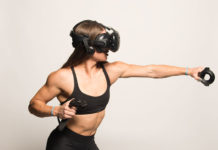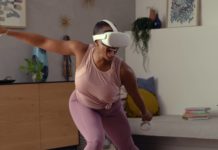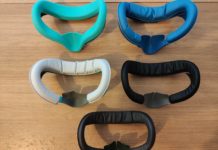Have you ever tried to recreate yourself in a video game? Sometimes it feels like the battle is lost before it even begins. Plenty of games offer the ability to create your own personalized avatar. The later Elder Scrolls and Fallout titles, as well as many MMOs to name a few. Often, thanks to the limitations of the medium or our unfamiliarity with our own faces, the created characters look nothing like us. Startup company ObEN wants to change that, and give us the ability to create more realistic avatars.

What is ObEN Doing?
The company was one of 33 chosen to work with HTC’s ViveX, an accelerator that provides VR startups with “education, investment, and mentorship.” ObEN just announced the acquisition of $7.7 million in funding from CrestValue Capital and other Chinese investors. The money is being used to scale up their current avatar project.
Their idea is to use AI to recreate a VR user realistically using nothing more than a picture of their face and a recording of their voice. On one hand, yes, that means that our digital selves will outlive our own mortal lives. If that doesn’t sound like the premise for a science fiction movie, I don’t know what does. In a way, the Black Mirror episode “Be Right Back” already did it. On the other hand, as you can see in the video above, it’s also pretty cool.
What Does it Mean for VR Fitness?
ObEN doesn’t anticipate that their project is going to be all fun and games. The company has received attention from the education and healthcare industries, where making sure people are who they say they are is a lot more important.
Immersion is one of VR’s biggest selling points. The more a user associates with their digital doppelganger, the more they would see the avatar as an extension of themselves. “Spatial immersion” is when a user feels like they are really in the virtual world, and that everything in it is real.
A recent study delved into the concepts of presence and spatial awareness in VR games. The study concluded the possibility that the quality of a game was in part determined by its level of user presence and spatial awareness. ObEN’s avatars are the extra step in cementing the real world, virtual world connection. It might be what VR fitness users need to improve their experience. We know it’s a game, and we know it’s not real. But how much will that line blur when it’s our virtual self we can see?





Comments are closed.